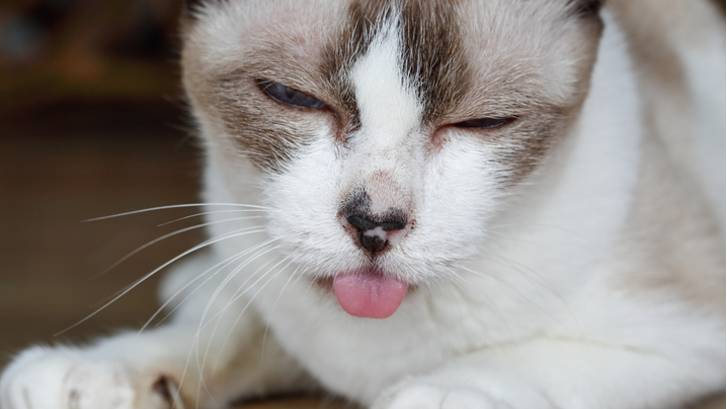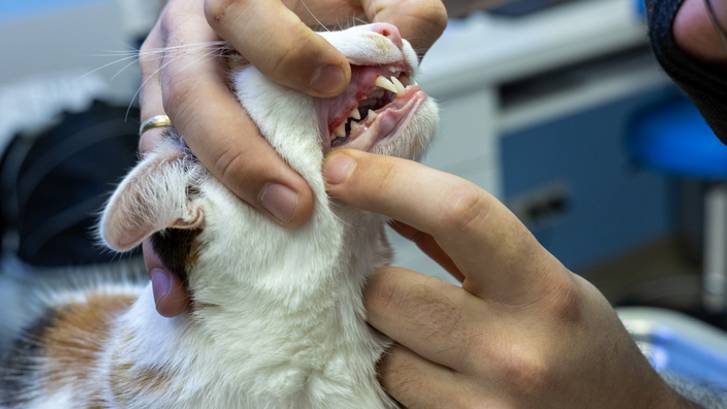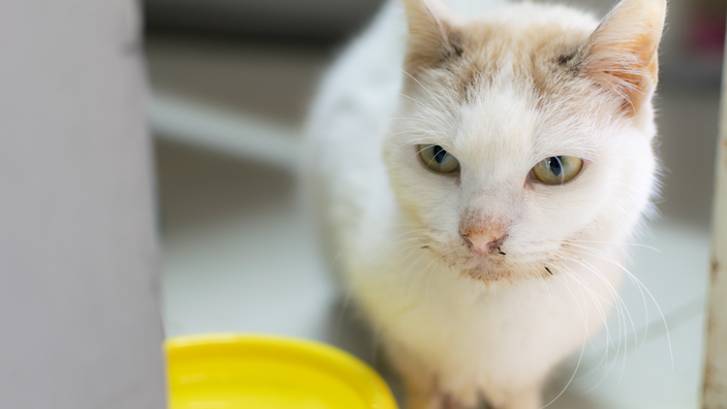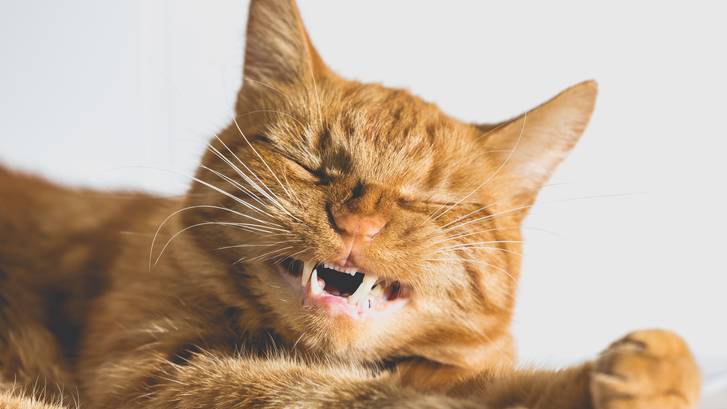Stomatitis in cats: Vet’s guide to symptoms and treatment
There are multiple causes of stomatitis in cats, and there are also multiple treatment approaches

Stomatitis in cats, also known as feline stomatitis or feline gingivostomatitis, is a condition that affects up to 4% of all pet cats.
This is a painful, chronic disease, and it can significantly impact a cat’s quality of life. There are multiple potential causes of stomatitis, and it’s often difficult to say what causes this condition in any individual cat.
Therefore, treatment may involve a bit of trial and error, to figure out which treatment works best for an individual cat. Most cats with stomatitis require ongoing treatment for the remainder of their lifespan. Unfortunately, this treatment can prove expensive if you do not have the best pet insurance for your feline friend.
This article will explore common causes and symptoms of stomatitis in cats, including outlining its relationship with FIV in cats and the type of treatment your cat can expect to receive.
- How to choose pet insurance: A guide to getting the best deal
- Keep cat teeth clean: Five ways to help them stay healthy
What is stomatitis in cats?
Technically, the word stomatitis means “inflammation of the mouth.” In cats, stomatitis typically involves inflammation of the gums, the roof of the mouth, and the upper levels of the throat. In some cases, the tongue may also be swollen and inflamed.
Stomatitis can range from mild to severe, and there are many potential causes of stomatitis. Cats that develop stomatitis tend to experience this disease for the rest of their lives, though treatments can help decrease the severity of the condition.

Symptoms of stomatitis
Bad breath is usually the first sign of stomatitis, accompanied by trouble chewing and swallowing. If you were to look closely at your cat’s mouth during these early stages of stomatitis, you would probably see red, swollen gums and maybe some increased drooling.
As stomatitis progresses, cats tend to become increasingly painful. Pawing at the mouth and other signs of oral pain are often observed in cats with advanced stomatitis. Your cat may have bloody saliva, or you may find small traces of blood in your cat’s water bowl or around your home. Cats often lose weight and become dehydrated, due to discomfort associated with eating and drinking.
Causes of feline stomatitis
There are many potential causes of feline stomatitis. In most cats, a combination of these factors probably combine to cause stomatitis.
Viral infections
A number of viral infections, including calicivirus, herpesvirus, feline leukemia virus (FeLV), and feline immunodeficiency virus (FIV), have been shown to have some link with stomatitis. Although the exact link between these viral illnesses and stomatitis remains unclear, cats that are infected with one or more of these viruses are at higher risk of developing stomatitis.
Bacterial infections
Bacterial infections can also play a role in stomatitis. Bacteria live in the mouth of all cats, but some studies suggest there may be differences between the oral bacteria of cats with stomatitis and the oral bacteria of healthy cats. It’s tough to say whether the bacterial changes are a cause or an effect of stomatitis, but it is certainly possible that oral bacteria can contribute to stomatitis.
Immune-mediated disease
Immune-mediated disease can also play a significant role in stomatitis. Some cats develop an exaggerated response to normal plaque and oral bacteria, because their immune system is overly reactive to foreign materials in the mouth. This exaggerated response results in oral inflammation or stomatitis. Immune-mediated stomatitis may occur alone, or in combination with other immune-mediated conditions.
Less common causes of stomatitis include trauma to the mouth (ingesting harsh chemicals, electrocution, etc.), kidney failure, and diseases that suppress the immune system (such as diabetes).

What percentage of cats with stomatitis are FIV positive?
It is estimated that between 10 per cent and 80 per cent of cats affected with stomatitis are FIV positive, depending on the particular study population. This is significantly higher than the prevalence of FIV in healthy cats; approximately 2.5-5% of healthy cats in North America have FIV.
We don’t currently know why this link exists, but we suspect that it may be due to the way that FIV affects the function of the immune system. Cats with FIV might struggle to control the normal bacteria that live in the mouths of all cats, or have an abnormal immune response to these bacteria.
Treating stomatitis in cats
The first step in addressing stomatitis is improved oral hygiene. Cats with dental tartar should receive a thorough dental cleaning under anesthesia, and the cat’s teeth should be brushed daily at home. In some mild cases of stomatitis, improved oral hygiene alone will result in significant improvement.
A number of medications can be used to treat stomatitis in cats. Commonly-used drugs include antibiotics, corticosteroids, immunomodulating drugs, and immunosuppressants.
In rare cases, stem cell therapy and/or laser therapy may also be considered. These treatments are typically continued long-term, for the remainder of the cat’s life. They do not cure stomatitis, but can help manage signs of disease. Similarly, some cats may also benefit from a hypoallergenic diet.
Unfortunately, many cats respond poorly to medical therapy. In these cases, the best treatment for stomatitis is dental surgery. Extracting some or all of the teeth removes the source of plaque and bacteria, providing the best possible chance of curing stomatitis.
Can stomatitis be cured?
The best possible treatment for stomatitis is full-mouth extractions, which means extracting all of a cat’s teeth. In one study of 95 cats with stomatitis, 28% were cured after full-mouth extractions.
Thirty-nine percent of the study cats showed substantial improvement after full-mouth extractions, while 32.6% of cats experienced little to no improvement. If your cat’s stomatitis is not cured (or significantly improved) with dental extractions, you will need to rely on medical therapies to keep your cat comfortable.

How long can cats live with stomatitis?
While stomatitis is not an immediately life-threatening disease, it can severely impact a cat’s quality of life. It can also limit a cat’s ability to eat and drink. In most cases, your veterinarian can develop a treatment plan that will keep your cat comfortable, resulting in a reasonable quality of life.
If this is not the case, and your cat experiences significant weight loss or dehydration, euthanasia may be recommended.
Can humans get stomatitis from cats?
Fortunately, your cat cannot give you stomatitis. Humans can develop their own form of stomatitis, but the causes are different than those in cats. While stomatitis may limit your kitty cuddles for other reasons (your cat may be too painful to cuddle, or have terrible breath), you do not need to worry about catching stomatitis from your cat.
Conclusion
Stomatitis in cats can be a painful, debilitating condition, especially when left untreated. If your cat is having bad breath, difficulty eating, or other signs of stomatitis, contact your veterinarian to schedule a consultation. Treatment of feline stomatitis can be challenging, but the sooner you begin treatment, the better your odds of being able to provide your cat with some relief.
PetsRadar Newsletter
Get the best advice, tips and top tech for your beloved Pets
Dr. Barnette is a graduate of the University of Florida, where she received both her B.S. in Zoology and her Doctor of Veterinary Medicine (DVM). She has 15 years of clinical experience as a small animal veterinarian, treating dogs, cats, and occasional exotic patients. She now works as a freelance veterinary writer, creating educational content for veterinarians, veterinary team members, and dedicated pet owners. Dr. Barnette lives in southwest Florida with her husband and daughter (plus two cats, a dog, and a rescued dove!) and enjoys kayaking, biking, and hiking. Learn more about Dr. Barnette at www.linkedin.com/in/catherinebarnette.

